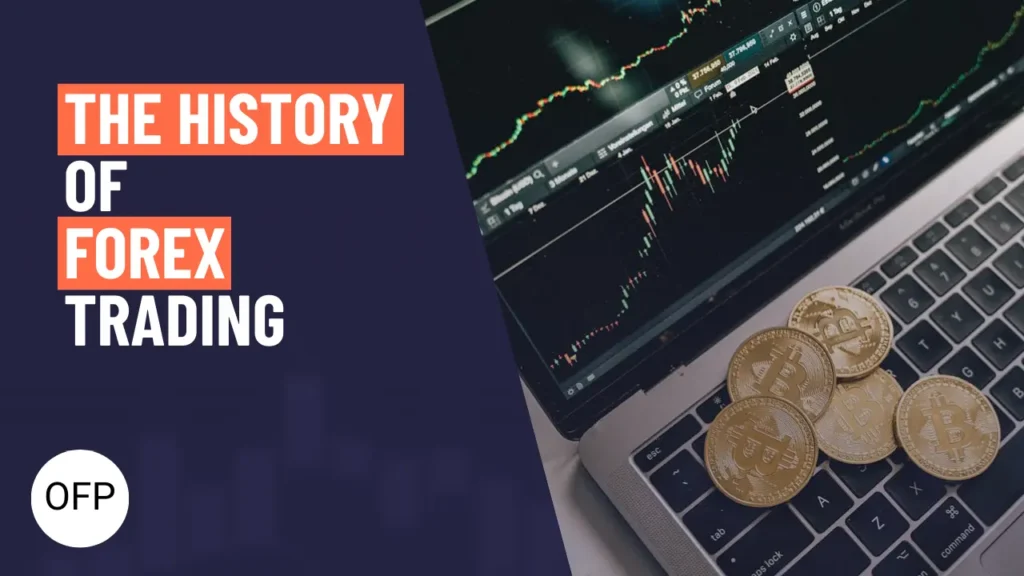Let’s look into the history of the currency market! Did forex trading start 13.8 billion years ago with the big bang, or 4.5 billion years ago, when the Earth’s new tectonic plates began exchanging currencies?
Even if you’re surprised to hear that currency trade isn’t that old, it has a rich history extending back thousands of years. As usual, world events, politics, and technology changed how people traded currency.
Trading coins in Old Times
The barter system was created by Mesopotamian tribes approximately 6000 BC. It was the first system of trading. Bartering spread to the Phoenicians in the eastern Mediterranean and the Babylonians. After thousands of years, the most significant change to the trading system occurred with the rise of gold coins in the sixth century BC. Gold and other metals were used as a medium of exchange because they were strong and simple to divide.
From Rags to Riches
In the thirteenth century, the Republic of Florence, a part of Italy, produced gold coins. It was called “Florin,” having a fixed amount of gold in it. The Florin swiftly established itself as the accepted medium of exchange for international trade in Europe. This was an early version of the gold standard. During the fifteenth century, the Medici Bank established banks abroad in order to exchange currencies. They invented the “nostro”, an account book which showed quantities in local and foreign currencies. It initiated the first version of what was “forex trading”.
Trading Forex in Ancient Times Wasn’t as Simple as Today
Two millennia ago, Greeks and Egyptians traded gold coins, with their weights determining their value. Five hundred years later, under the Roman Empire, currency minting was established. Today’s system is still similar, with central banks setting monetary policy. Copper was preferred for coin minting during the Middle Ages. Therefore, lower-value coins were made by using copper rather than gold. At that time, Monte dei Paschi was established in Italy specifically to handle money exchanges. Isn’t it interesting where the history of banks began?
The Gold Standard
500 years ago, the first currency market was established in Amsterdam. Amsterdam brought forex trading to the world. 1875 marked the start of the Gold Standard. Under the Gold Standard, a nation could only print as much money as it had in gold reserves. The goal was to guarantee a currency’s worth. The Gold Standard came to an end when nations had to print more money after World War I in order to pay for their bills. The Bretton Woods system was implemented during World War II. It was meant to be the replacement for the failing Gold Standard.
What Happened After World War II?
The first few decades of the twentieth century experienced political and economic calamities. Great Depression and two world wars were among the many. The Bretton Woods Agreement was signed by the US, Canada and several Western European nations. Their currencies could fluctuate up to 1% from the the agreement. The World Bank and the International Monetary Fund (IMF) were also created. Japan approved the Foreign Exchange Bank Law in 1954, which helped Tokyo become a Forex Trading hub.
Euros & GBP: Two of The most Traded currencies in Forex Trading
The Exchange Rate Mechanism (ERM), created by European nations, required members to maintain their currencies at a set rate. In 1990, Britain joined this mechanism. The British government fought hard to maintain the value of its currency within a predetermined range. Ultimately, it became inefficient to keep the pound inside the ERM, and its value dropped in 1992. By selling the pound, currency speculators made billions of dollars, most notably George Soros. In 1999, twelve European countries participated in the creation of Euro. Of all the currency pairs in the forex market, the EUR/USD pair is now the most liquid and frequently traded.
Conclusion: Forex Trading in Our Times
Today, Forex trading has become more accessible than ever. Traders are partecipating in the markets from the comfort of their homes. Prop trading firms like OFP provide traders with the necessary funds, revolutionizing the game. This accessibility marks a new era in the 21st century. Never before has Forex been so within reach for beginner and experienced traders.

